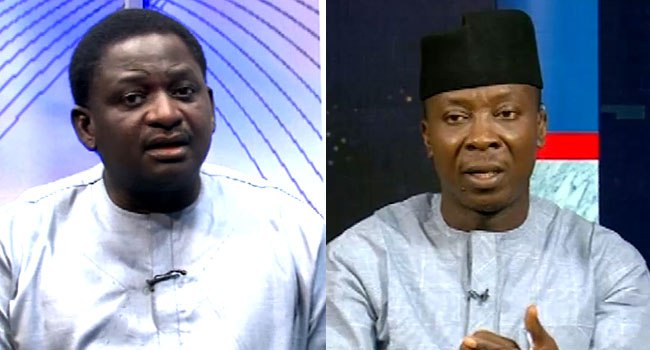By CrossRiverWatch Admin
Mr. Femi Adesina and a political scientist, Akinloye Oyeniyi, have disagreed over the procedure that led to the conviction of Justice Walter Onnoghen by the Code of Conduct Tribunal (CCT).
Adesina who is the Special Adviser to the President on Media and Publicity insisted that the Federal Government followed due process in the case.
“That’s a position that has been there since January when the saga started, but one thing about this Presidency is that it does things according to procedure,” he told Channels Television during his appearance on Politics Today on Friday.
The Presidential aide added, “What happened which a lot of people interpreted as sacking the CJN was just a suspension. It was clear; the CJN was suspended prior to the completion of the procedure that started then with his arraignment at the CCT.”
The CCT had convicted Justice Onnoghen and removed him from office as the Chief Justice of Nigeria (CJN) and Chairman of the Code of Conduct Bureau (CCB).
It also banned him from holding public office for the next 10 years and ordered the judge to forfeit all five accounts said not to have been declared by him between 2009 and 2015.
The judgement has sparked mixed reactions, as some faulted it while others said it was appropriate.
Explaining further the procedure that led to the judgement, Adesina affirmed that the government never sacked Justice Onnoghen as alleged.
He said, “Before he (Onnoghen) threw in resignation, he was just suspended and not sack. So, the matter of wrong procedure does not arise at all. Nobody is above the law, not even the judiciary.”
Oyeniyi, however, disagreed with the explanation by the presidential aide and faulted the genesis of the whole issue.
He insisted that Onnoghen was still a sitting CJN as at the time when the government filed the charges against him at the Tribunal.
The political scientist, therefore, stated that the tribunal lacked the jurisdiction to entertain the case, referring to a case involving Justice Ngwuta.
He argued that the Constitution provided that it was only the National Judicial Council (NJC) that has the power to discipline a judicial officer.
“We have to look at this judgement; you know the issue started somewhere before it ended where it ended,” said Oyeniyi.
He added, “You can’t jump the NJC and go to the CCT.
“First, let’s look at the issue of jurisdiction because when a particular court or tribunal does not have jurisdiction to hear a particular case … if you continue to hear that case, whatever that is going to be the outcome of that case, you are building that particular structure on a no foundation.”
Culled From Channels Television.

Leave feedback about this